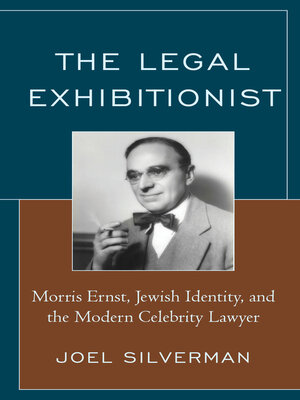The Legal Exhibitionist
ebook ∣ Morris Ernst, Jewish Identity, and the Modern Celebrity Lawyer · The Fairleigh Dickinson University Press Series in Law, Culture, and the Humanities
By Joel Silverman

Sign up to save your library
With an OverDrive account, you can save your favorite libraries for at-a-glance information about availability. Find out more about OverDrive accounts.
Find this title in Libby, the library reading app by OverDrive.



Search for a digital library with this title
Title found at these libraries:
| Loading... |
Born to a Jewish immigrant shopkeeper in a small Alabama town, Morris Ernst used aggressive self-promotion and exaggeration—what he called "exhibitionism"—to transcend his insecurities and his part-time legal training to become one of America's most famous lawyers. During the first half of the twentieth century, Ernst championed free speech, sexual education, birth control, and reproductive health, and his landmark defense of James Joyce's Ulysses in 1933 cemented Ernst's reputation as the top progressive attorney of the era. To promote himself, Ernst befriended newspaper writers, authors, actors, politicians, and practically anyone whose work carried some weight in popular culture. But his hunger for respect and recognition, together with his need for excitement, led Ernst to lavish praise on J. Edgar Hoover and to publicly defend—and profit from—a Dominican dictator. In the process, Ernst undermined his own credibility and largely fell out of favor with the public. By examining key moments of his life and career, The Legal Exhibitionist: Morris Ernst, Jewish Identity, and the Modern Celebrity Lawyer describes how Ernst's exhibitionism led to his rise and fall and suggests how his strategy of exaggeration anticipated the emergence of today's celebrity lawyers.






